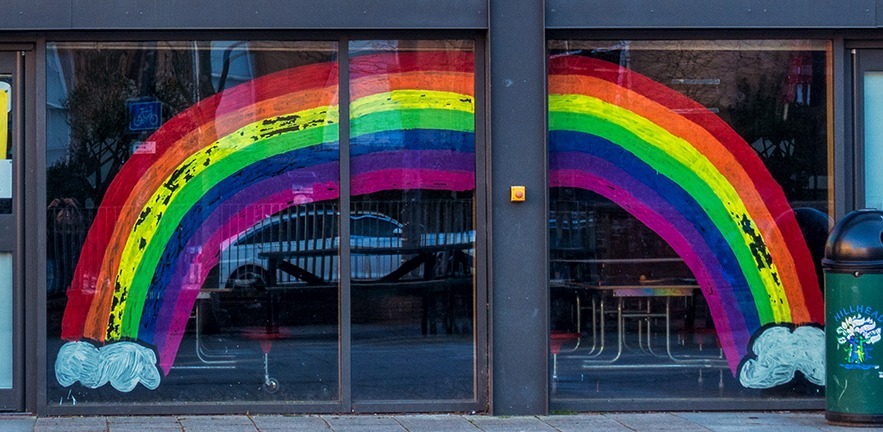This is the time to channel our COVID-19 compassion into sustainable solutions, says Dr Matthew Grimes, Reader in Organisational Theory & Information Systems and Co-Director of the Entrepreneurship Centre.

Like natural disasters and other shocking events, the spread of COVID-19 (coronavirus) has compelled a groundswell in global compassion – capturing the emotions of the public, corporate philanthropy and the charity sector.
Compassion is a particularly powerful emotion that encourages individuals to suffer with those in crisis – an experience which tends to prompt swift action, big and small. In Britain, all heartstrings were touched by 99-year-old Army veteran Captain Tom Moore, who raised more than £25 million for Britain’s National Health Service by walking 100 laps of his garden before his 100th birthday.
Yet because compassion is experienced as an acute emotion, it is often prone to quick dissipation as people suffer compassion fatigue or become desensitised to an issue over time; this is one reason chronic social problems such as rural poverty, inequality and broken educational systems are significantly underfunded.
So given the current coronavirus focus, this is an opportune time to ask a very important question: how can organisations channel compassion into sustainable solutions? Research into how compassion interacts with social entrepreneurship – the use of market-based solutions to tackle social problems – offers some valuable insight.
In a study I co-authored in the Academy of Management Review, we explored how compassion can produce highly creative responses to those who are suffering and thereby serve as the foundation of social entrepreneurship – a sector well aware of the growing need to maintain financially sustainable operations amidst the fickle nature of global philanthropy.
Co-authored by Toyah Miller (University of Texas Dallas), Jeff McMullen (Indiana University), and Tim Vogus (Vanderbilt University), the study showed how compassion can offer a basis for creativity by way of integrative thinking, motivate entrepreneurial action by way of a prosocial cost-benefit analysis, and encourage entrepreneurial persistence by way of an identity-based commitment to alleviating others’ suffering.
Three particular insights flow from this:
- One of the essential features of innovative or entrepreneurial action is the ability to draw on and form mental connections between diverse sources of information – which can manifest itself in “thinking outside the box”. Because compassion encourages us to engage in perspective-taking, it forces us outside our own boxes to reflect on systemic challenges that impede progress on social issues – and hopefully spur creative ideas to solve them.
- Within the context of innovation, people often face a significant barrier between idea creation and motivated action due the perception of personal risk. But compassion lowers the bar to action by shifting individuals away from more traditional feasibility analysis and toward a prosocial cost-benefit analysis, thus prompting them to overlook the personal risks involved in pursuing needed change.
- Although pursuing innovation in response to crisis can prove highly rewarding in the long term, such pursuits are often fraught with a high risk of short-term failure. So it is important that compassion is channelled in such a way that it compels lasting commitment that transcends any expectation of equitable reward.
To the extent that compassion moves beyond one’s emotional state to become an integral part of individual or organisational identity, it can encourage commitment even as fatigue sets in. Identity can be an unbelievably powerful and resilient motivational force.
As we look around our communities during this period of crisis, let us continue to foster and celebrate compassion-driven responses to those who are suffering most because of the pandemic and its ripple effects. But as we do so, let us not forget that acutely felt crises are often made worse because of chronic social problems. So we must get better at channelling our compassion toward sustainable solutions – solutions which not only seek to change our broken systems, but to do so in ways that are resilient to the unpredictable resource flows that characterise those broken systems.


